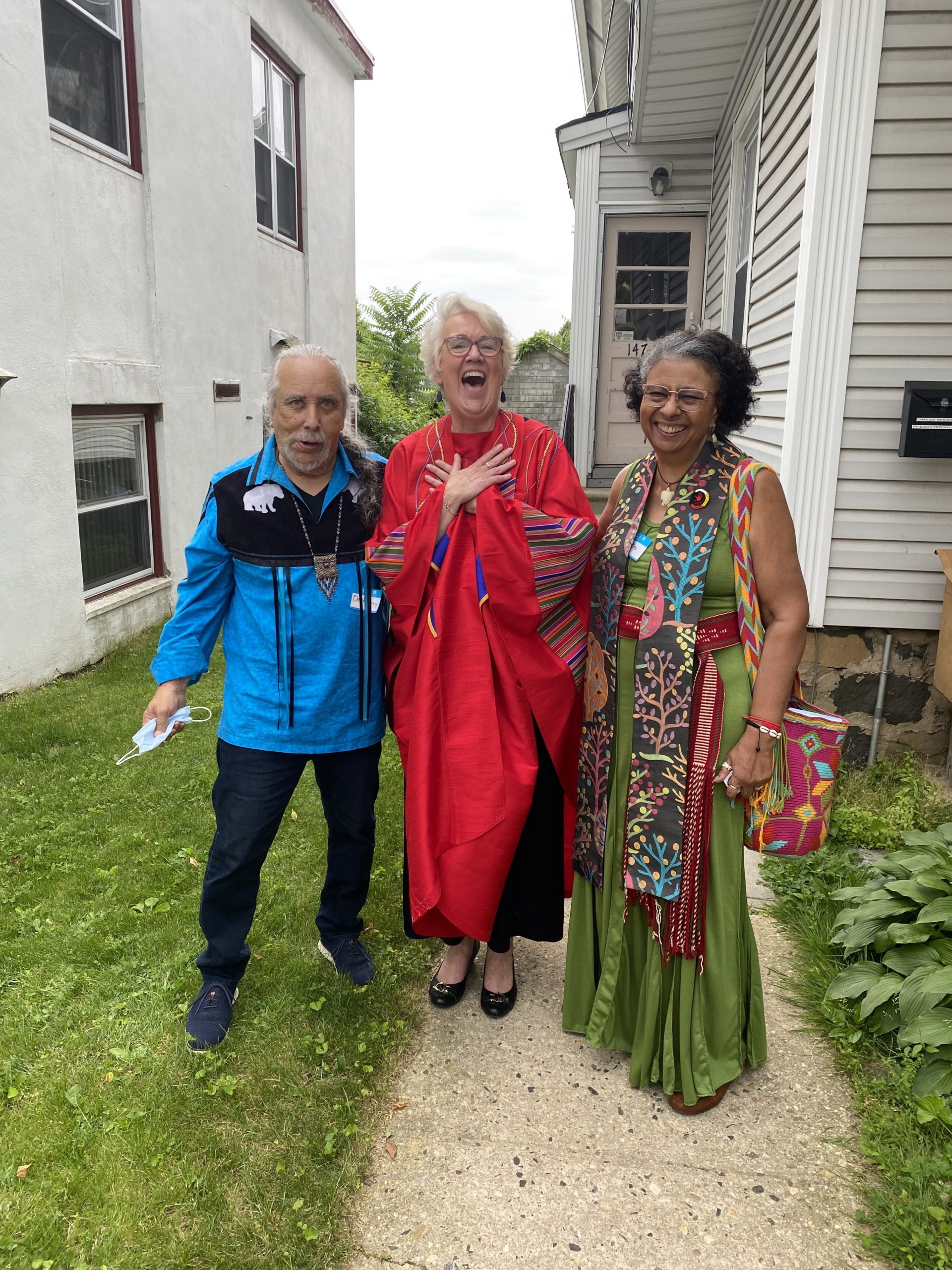7 min read
Union Alumna Rev. Petra J. Thombs ’18 has lived a rich and inspiring life. Rev. Thombs has worked in education, served as the Executive Director of the Ramapough Lenape Community Center, and is currently the Community Minister at the Unitarian Universalist Congregation of Central Nassau. Rev. Petra Thombs kindly offered her time to speak with us about her work, her ministry, and her vision for a just world.
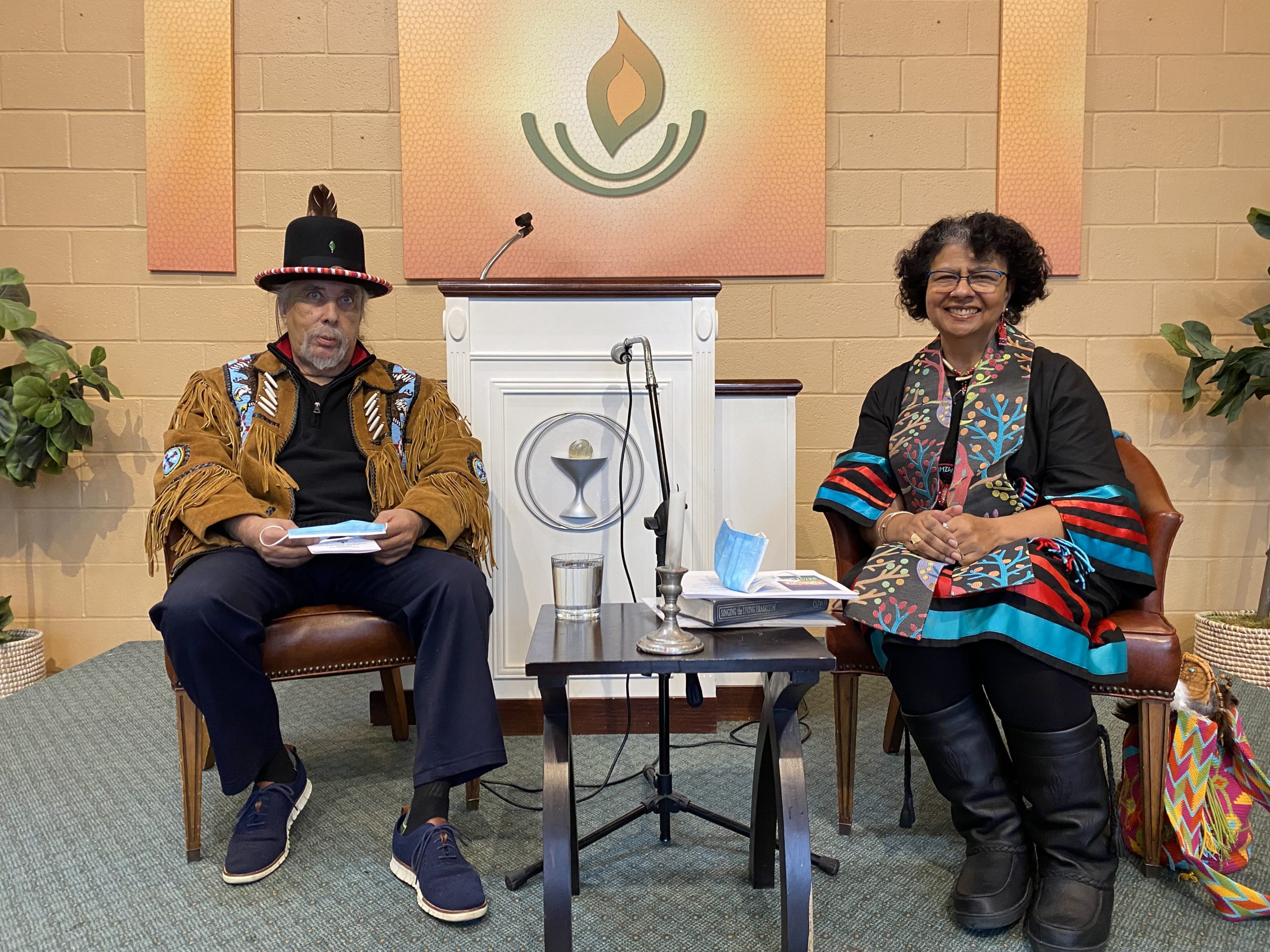
Hi Rev. Petra, thank you so much for taking the time to speak with us today. As you know, October 10 is Indigenous People’s Day, and in honor of this but also with so much curiosity and appreciation for you and your work, we are really excited to have the opportunity to speak with you. To start, we would love for you to tell us a bit about who you are and the work you are engaged in.
It’s been quite the journey. When we think about our lives, we think about what is our origin tale, and what helped us get to the place we are now?
My origin tale began in Brooklyn, my mother is from the South, and she didn’t have a lot of information about heritage other than knowing that she was African American and Cherokee. My father was from Trinidad and made a point of learning African American history so that he could share that history with his children. That really helped to ground me, because history matters so much. Knowing my origin tale helps me to have some perspective.
I had originally wanted to be a priest when I was little but I grew up Catholic. I worked as an educator for many years, as a teacher, a special education teacher, a coordinator, an administrator, and over the years, that was my ministry. I left the Catholic church and became a Unitarian Universalist, and now I am an ordained Unitarian Universalist minister.
As a Unitarian Universalist, we have the opportunity to become community ministers, and that opened up the idea for me that I could work with Indigenous people. I am an African American and Cherokee woman living in Westchester on Lenape land, and connecting with relatives who are Ramapough. At Union, through the Center for Earth Ethics, I met Karenna Gore and Chief Perry, Tribal Chief of the Ramapough. This eventually led me to becoming the Executive Director of the Ramapough Lenape Community Center.
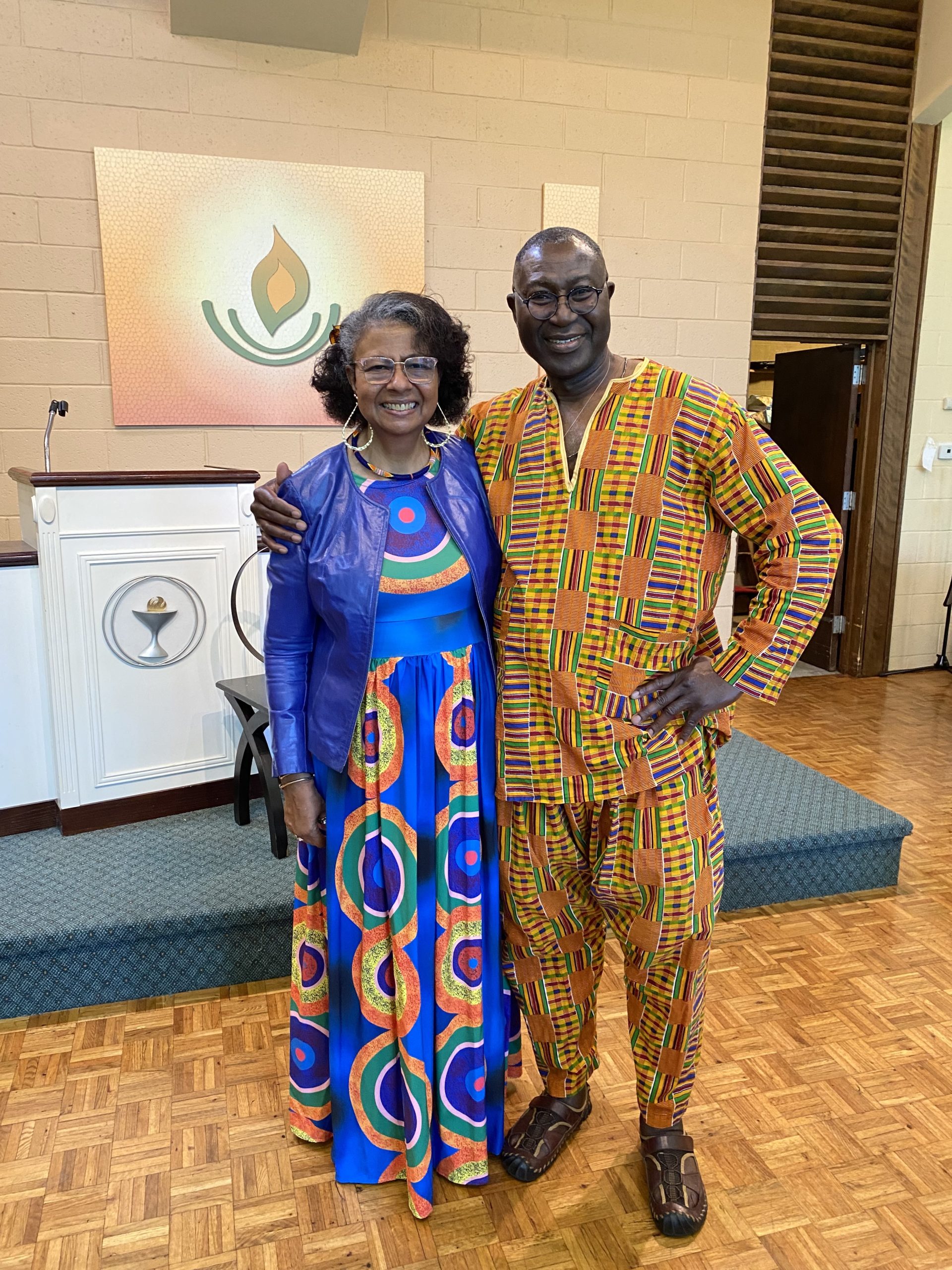
Can you tell us a bit about your work as Executive Director of the Ramapough Lenape Community Center?
Working in administration for years, the first thing I learned is that the building needs to be secure so that everyone coming to the building can feel safe. The Ramapough Lenape Community Center had a lot of needs, and one in particular was the bathrooms. They were not handicap accessible, so I learned about writing grants for community development and I am happy to say that now the bathrooms are handicap accessible. Then there was other work to do. We just received funding to renovate the kitchen. My vision is that it will be a teaching kitchen where people will be able to come and learn about nutrition, create native foods, prepare them in the traditional way, and have a vegetable garden. There are other funds that we are looking to get from the state for the rest of the building’s upkeep—we would like to be able to have displays of culture and tradition that exemplify who the people are and their connection to all the relatives and the land. We want to allow the walls to tell the stories of the Ramapough. We are also working on making the building more secure to prevent flooding. We are looking to make it a place where people feel proud to be there.
During COVID, the center was able to host vaccine events which was very beneficial. Because the center had a vaccine event, I was able to participate, my husband was able to participate, and that meant our safety.
I also wrote another grant for a group called Sister Spirit Circle, which brings together Ramapough women to talk about tradition and heritage. Because of the impacts of colonization, there are many people who have not had the opportunity to learn basic things, to understand the significance of the tribal seal, to pray to the seven directors, to sing. Bit by bit we are able to come together to learn from each other and share this wisdom and beauty of our solidarity and indigeneity.
Presently I’m serving as a Community Minister. As Community Minister, I’m reaching out to other congregations in order to partner with us and learn about land acknowledgement, to go further than just saying a land acknowledgement but to actually get involved. A number of the congregations have shared their collection plate with the Ramapough, which has been helpful.
For Indigenous People’s Day, the Ramapough Lenape Community Center will have a film showing of the Doctrine of Discovery followed by a discussion on where we are and how do we move forward. This will be an annual event in order for the Ramapough people to see it and their own history in context. On Sunday we are having an honoring ceremony on the land for Allies of the tribe.
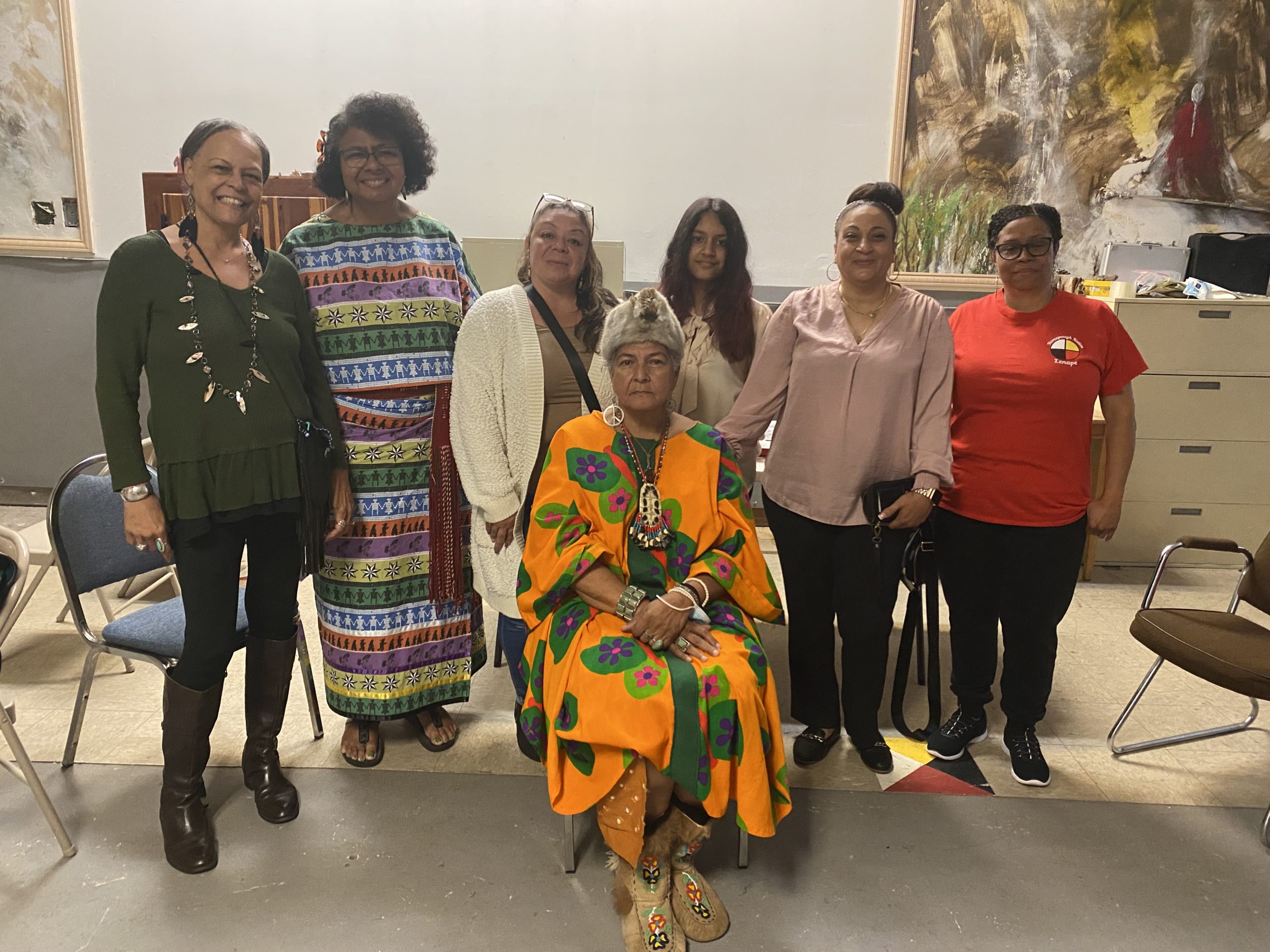
Much of your work is centered around educating folks about the Doctrine of Discovery. Can you tell us a bit about what this is, and why it is so important to be educated on it?
Teaching about the Doctrine of Discovery allows us perspective to understand: why are we in the place that we are in? How did we get here? What was happening systemically that impacted us to such a degree that we are so far away from our traditions, our language, the things that have made us who we are?
Forty years prior to Columbus, the Catholic Church exercised a colonizing order to the King of Portugal in retaliation for the Moor’s entrance of the Iberian Peninsula. In 1452, Pope Nicholas V, told the King of Portugal to “invade, capture, pursue, and vanquish all Pagans, Saracens, and enemies of Christ and put them in perpetual enslavement, take all of their lands and possessions.” And this same colonizing mindset is what we see when we look at history, at Columbus, at the idea of Manifest Destiny—this idea that people have the right to steal the land of Indigenous people because they believe it is their God-given right to do so.
Today, in our own U.S. laws, these colonizing doctrines live on through our laws on Indigenous land, on the right to take Indigenous land—giving them the right to occupancy but not the right to protect the resources that are on their land. It is essentially saying that Indigenous people have no right to their own homeland.
The difficulty too is the forced removal of Indigenous people, certainly Cherokee. My family had not been moved West, but many of our people were enslaved and put on plantations, and once enslavement was over they took what land they had and forced them off. My family fled from Bertie County, North Carolina to Virginia and re-homed themselves there. And these are the things we know—we don’t necessarily know our traditions and ways. The Cherokee Nation has worked very diligently to try to bring relatives together, and through the gift of technology we can do it from wherever we are on a fairly regular basis. When I’m able to I join in it helps me feel connected, and that is a gift. They fill one’s spirit, they let you know that the vision that you had in your mind of embracing your indigeneity is real and it is something that Spirit wanted you to follow.
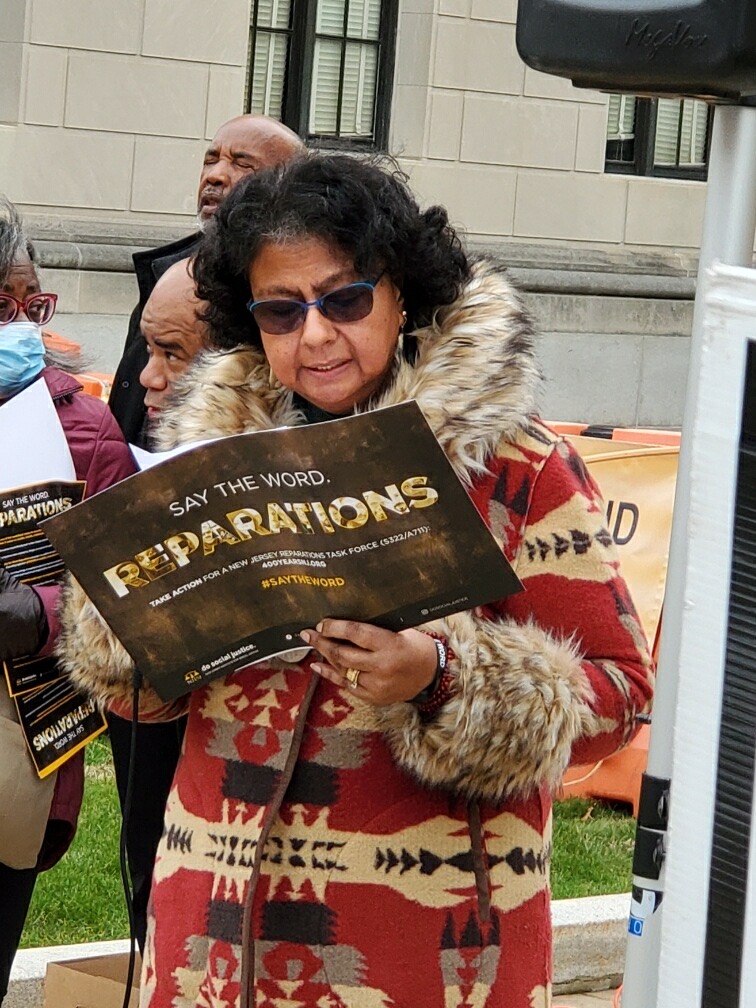
In this society we point fingers at each other instead of recognizing what is happening systemically. It’s probably because we are really afraid of things that feel outside of our control. But the Doctrine of Discovery is part of the origin tale of this country. If we do not know the truth that history teaches us we are destined to have it repeated. Knowing our history allows us to decolonize, to recognize what we are doing and what is unjust. If we know better then we can do better.
You graduated from Union in 2018. What was your experience like at Union?
I started in Union in the fall of 2015 and I graduated in May 2018. I had retired from the Department of Education after 32 years, wondering if I could really do this, if I could really go to seminary. I decided to just try it, got my acceptance, and enrolled.
I was privileged to have Dr. James Cone as one of my professors. He really challenged us in terms of theology and what we believed and writing our own theology. It was wonderful for me to be introduced to Vine Deloria, an Indigenous theologian, as well as Mercy Amba Oduyoye, and learning about community and how hospitality is at the core of African belief and practice. I also had an amazing time with my history professor Dr. Daisy Machado and learning about the borderlands. I felt so grateful to be able to work with her as a Teaching Assistant for Church History and to speak with students and hear their perspectives and learn in that way.
I also had the most amazing experience going to Senegal with Professor Dr. Aliou C. Niang—this was the hallmark of the Union experience.
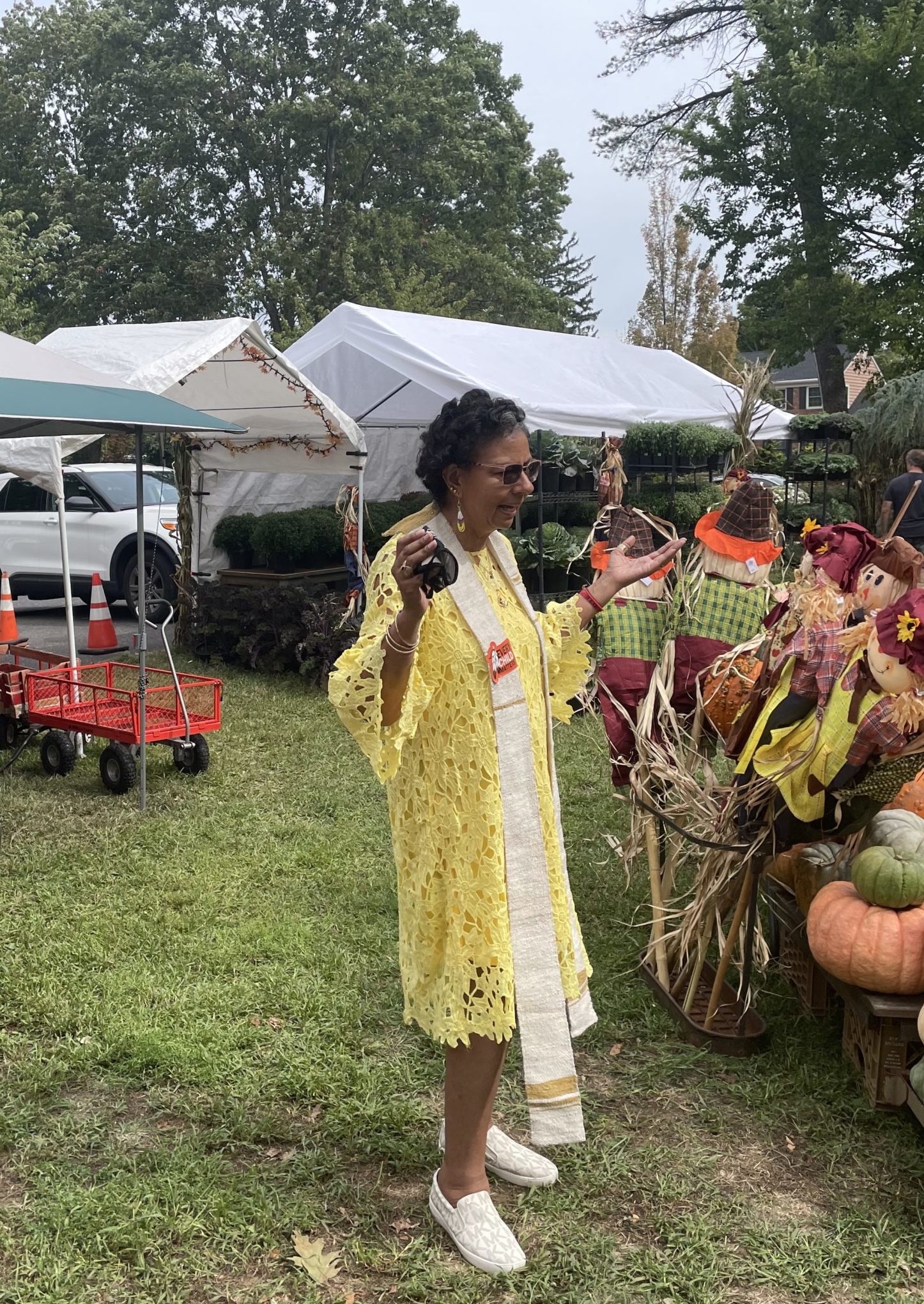
Your work has spanned activism, ministry, education, and so much more. How do all of these facets weave together and inform your understanding of collective change and healing?
I choose to be a minister because I believe Creator has decided that for me. Everything connects in so many different ways. Be open to what Spirit is calling you to. Life is hard, but it is not impossible. We are able to do things because our ancestors are supporting us, we are able to get there because they are behind us. Be open and you will find that you are where you need to be. And that’s how all of these things work together.
I often hear from Ramapough elders that we need to pray more. There are times in constant prayer where you can understand that your ancestors are leading you, Spirit is leading you, your faith is leading you. It helps you to see clearly the path that you are on, where you need to go, and how to get there. Saying “pray” still seems so foreign to us in our society, or people say it in order to misuse us or manipulate us. This is not about telling someone what to do with their prayer, it’s about being open to prayer, and recognizing that this is how we can decolonize.
Is there anything else you would like to share?
I have been thinking about possibilities which connect us to our realities. What is possible for you in your life? What will that look like? This society has been honed on white supremacy, on believing in the other, believing the myth that five people of color waiting for a bus are possibly a gang—no, they’re probably just waiting for a bus. It’s very hard for us to move away from what society is grooming us towards. To the degree that we have taken these myths in, they have successfully separated us from one from another. What is the internal work that we all need to do in order to be open to receiving people? We have to change something inside. This is our greatest challenge in building beloved community. It goes against everything that empire has taught us, it goes against white supremacy. To uplift what indigeneity really is about, and love, and justice.
It’s a lot of work, but what else are we here for? We are here to find better ways to be in this world. This is heaven, but we have to make that heaven real for everyone.
